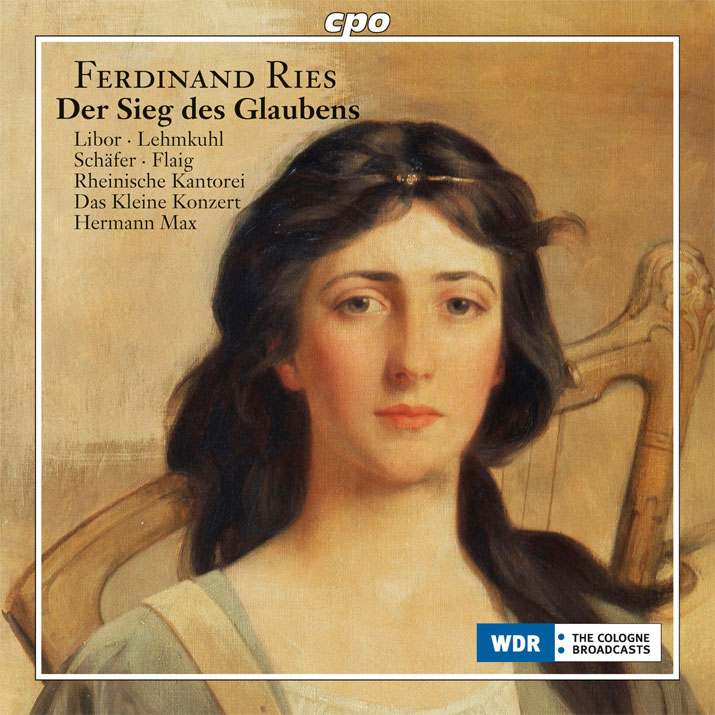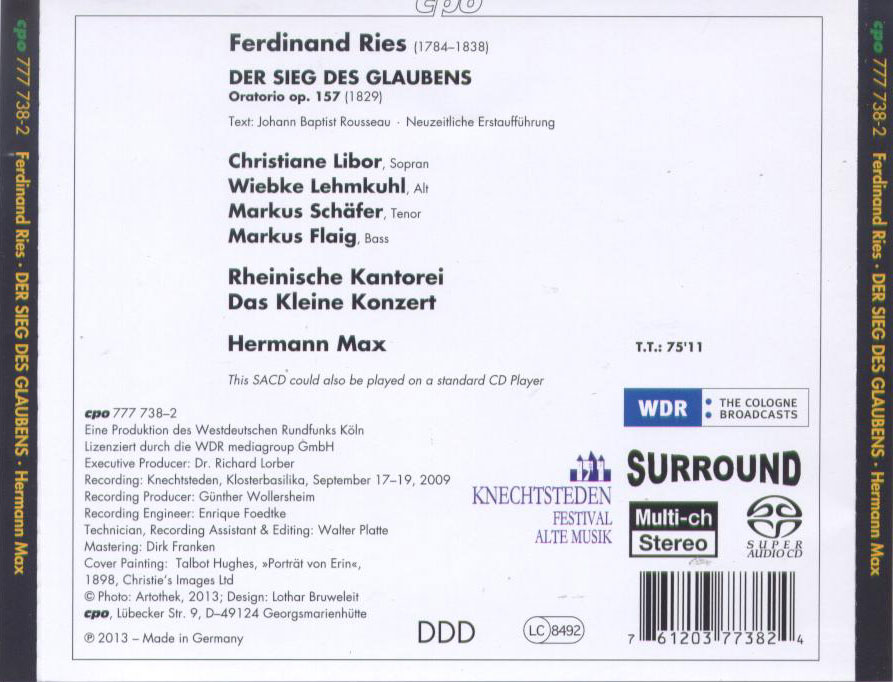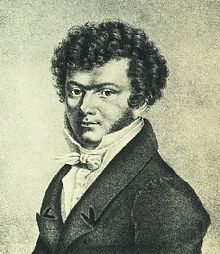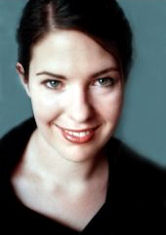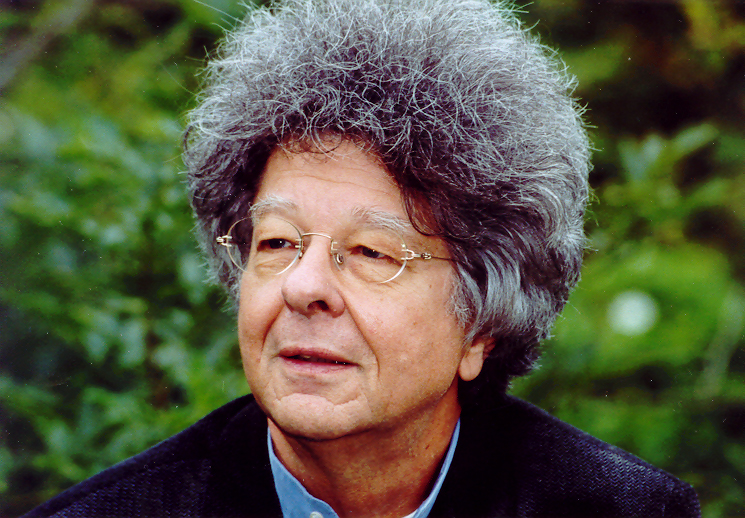Share This
Album at a Glance
Tags
Related Posts
- The Golden Age of Danish Partsongs / Ars Nova Copenhagen; Paul Hillier
- Paul Graener: Orchestral Works, Vol. 2 / Werner Andreas Albert
- Dmitri Kabalevsky: Cello Concertos 1 & 2; Colas Breugnon Suite / Torleif Thedéen, cello
- Niels W. Gade: Piano Sonata op. 28; Aquarellen opp. 19 & 57 / Christina Bjorkoe, piano
Ferdinand Ries: Der Sieg des Glaubens, oratorio
Posted by Paul Ballyk on Jul 15, 2013 in Romantic | 0 comments
Eminent violinist, renowned conductor, esteemed composer and son of the young Beethoven's teacher (himself later a student of Beethoven), Ferdinand Ries (1784-1838) enjoyed a remarkable career that spanned the European continent. Up until recently, Ries held only a footnote in music history for a collection of memoirs he published about Beethoven. Thanks to several enterprising record labels, most notably cpo and Naxos, Ries has lately gained recognition for his own fine compositions, as well as a growing representation in the catalog of recordings. This new cpo release adds to Ries' tally the world premiere recording of the oratorio Der Sieg Des Glaubens, Op. 157 (The Triumph of Faith), performed by Das Kleine Konzert under the direction of Hermann Max.
Like Beethoven, symphonies, chamber music and piano works form the core of Ries' output. The opportunity to compose an oratorio presented itself late in his career and the premiere performance was an overwhelming success. Ries was thrilled, calling his new oratorio "the greatest and most highly effective work that I have written." Music of Ries' contemporaries, Schumann, Mendelssohn and especially Beethoven came to mind listening to this vigorous and gripping music. Above all, it is Ries' rousing music for chorus, and how it is punctuated by the instruments in his orchestra, that impressed me the most.
In Ries' time, valveless or "natural" horns and trumpets were employed largely as percussive instruments (and for fanfare melodies), adding punch to the contour of the music much as timpani, bass drum or cymbals might. The horn section of Das Kleine Konzert is especially effective in this regard, with a commanding "bite" to their sound. Listen to the two tracks I've provided. The first is a brief lyrical number for women's chorus and the second, a bracing one for male chorus, driven forward and powerfully punctuated by various sections of the orchestra, particularly the brass.
This high-octane music seldom lets up, and I've returned to the recording many times. A fine quartet of soloists, with no weak link among the lot, rounds out the superb performances by orchestra and chorus for an exhilarating listening experience.
Beethoven’s gifted pupil Ferdinand Ries was never entirely forgotten, but it is only in recent years that cpo and Hermann Max have dedicated themselves with great success to the rediscovery of this spirited late classicist and romanticist. His oratorio Der Sieg des Glaubens (The Triumph of Faith), heard here for the first time since 1829, celebrates the triumph of "believers of gentle heart." Ries wrote this work in response to a commission for a composition for the Lower Rhine Music Festival in Aachen in 1829. Johann Baptist Rousseau (1807-67), a man of letters esteemed in the Rhineland (not to be confused with the similarly named French poet Jean-Baptiste Rousseau), managed entirely without a continuous plot in this work and instead developed a philosophical discourse dealing with the power of faith and the grace of God. The cast of characters may be said to have been depersonalized. They are essentially different only because of their membership in the large group of believers or the small group of unbelievers. Ries brings out this aspect in his setting with many impressive choral and ensemble numbers and repeatedly divides the Chorus of Believers into a female choir and a male choir. The arias rely less on virtuosity than on an intensive interpretation of the text following the verbal inflection. Something similar also applies to the choral numbers, which are often spiced with an highly effective, harmonically attractive orchestral part. The Aachen premiere was an overwhelming success for Ferdinand Ries, who shortly thereafter wrote "with very great joy" to his brother Joseph in London: "My oratorio was received in such a way that the whole hall trembled – it is the greatest and most highly effective work that I have written, but I could not have imagined the reception in this way; everybody was absolutely wild and true jubilation reigned everywhere." Source: cpo records
|
Ferdinand Ries, composer Born into a musical family of Bonn, Ries was a friend and pupil of Beethoven who published in 1838 a collection of reminiscences of his teacher, co-written with Franz Wegeler. He was also a composer who left eight symphonies, a violin concerto, eight piano concertos and numerous other works in many genres, including 26 string quartets. |
|
|
Markus Flaig, bass Markus Flaig came over to the organ music and a school and church music degree in vocal. Born in Horb am Neckar, he studied with Prof. Beata Heuer Christians in Freiburg and Professor Berthold Possemeyer in Frankfurt am Main, for several years he has worked with Carol Meyer Brütting. |
|
|
Markus Schäfer, tenor The tenor Markus Schäfer studied singing and church music in Karlsruhe and Dusseldorf with Armand Mc Lane. He was a prize winner in Berlin (National Singing Competition) and Milan (Caruso Competition). |
|
_427_300_c1_center_center_0_-0_1.JPG)
Christiane Libor, soprano |
Christiane Libor, soprano Christiane Libor was born in Berlin, where she received her first lessons in piano and voice. She studied at the ‘Musikhochschule für Musik Hans Eissler’ Berlin with Professor Anneliese Fried and complemented her conservatory education in training with Dietrich Fisher-Dieskau, Julia Varady… |
|
Wiebke Lehmkuhl, alto The German contralto, Wiebke Lehmkuhl, attended during her school years attended master-classes, concerts and won numerous awards as a flutist (modern flute and Baroque flute). She received her first singing lessons in 2002 with Ulla Groenwold in Hamburg. |
|
|
Hermann Max For three decades, Hermann Max has been a major contributor to the canon of historically informed performance practice; as conductor of his own ensembles, the orchestra Das Kleine Konzert and the choir Rheinische Kantorei, he sets new standards with his concerts, broadcasts and recordings. |
|

Rheinische Kantorei - Das Kleine Konzert |
Rheinische Kantorei Since its foundation in 1977, the Rheinische Kantorei has become synonymous with exemplary interpretations in the spirit of historical performance practice. The austere voices distinguish themselves by a bright, radiant sound, absolute precision in intonation, perfect harmony, carefully worked-out diction, transparency and ease. http://www.rheinischekantorei.de Das Kleine Konzert The baroque orchestra Das Kleine Konzert owes its name to an 18th century model, Das Große Konzert, which was founded in Leipzig in 1743 and later became the Gewandhausorchester. |
| Thinking about purchasing this album?
Follow this link for more album details or to make the purchase. Buy it now |
“Not just recommended. Guaranteed.”
We stand behind every album featured on Expedition Audio. Our objective is to take the monetary risk out of music exploration. If you order this album from HBDirect.com and do not like it you can return it for a refund.





